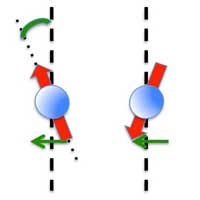 Combined optical and torque measurements establish the microscopic mechanism linking magnetism and electronic-band topology in a Dirac material.
Combined optical and torque measurements establish the microscopic mechanism linking magnetism and electronic-band topology in a Dirac material.
Friday, April 3, 2020
A twist connecting magnetism and electronic-band topology
 Combined optical and torque measurements establish the microscopic mechanism linking magnetism and electronic-band topology in a Dirac material.
Combined optical and torque measurements establish the microscopic mechanism linking magnetism and electronic-band topology in a Dirac material.
Harnessing the rain for hydrovoltaics
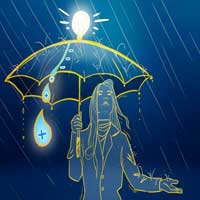 Drops of water falling on or sliding over surfaces may leave behind traces of electrical charge, causing the drops to charge themselves. Scientists have now begun a detailed investigation into this phenomenon that accompanies us in every-day life.
Drops of water falling on or sliding over surfaces may leave behind traces of electrical charge, causing the drops to charge themselves. Scientists have now begun a detailed investigation into this phenomenon that accompanies us in every-day life.
A combined optical transmitter and receiver
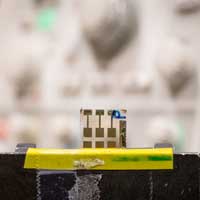 Researchers have developed a tiny unit with perovskite diodes that is both an optical transmitter and a receiver. This is highly significant for the miniaturisation of optoelectronic systems.
Researchers have developed a tiny unit with perovskite diodes that is both an optical transmitter and a receiver. This is highly significant for the miniaturisation of optoelectronic systems.
Capturing 3D microstructures in real time
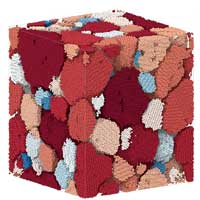 Researchers have invented a machine-learning based algorithm for quantitatively characterizing, in three dimensions, materials with features as small as nanometers.
Researchers have invented a machine-learning based algorithm for quantitatively characterizing, in three dimensions, materials with features as small as nanometers.
A new way to fine-tune exotic materials: Thin, stretch and clamp
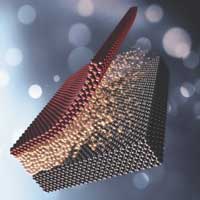 Turning a brittle oxide into a flexible membrane and stretching it on a tiny apparatus flipped it from a conducting to an insulating state and changed its magnetic properties.
Turning a brittle oxide into a flexible membrane and stretching it on a tiny apparatus flipped it from a conducting to an insulating state and changed its magnetic properties.
Turning cells into computers with protein logic gates
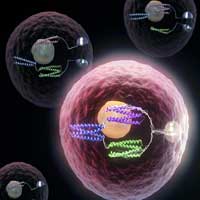 Biochemists have created 'smart' proteins that function inside human cells by turning genes on and off.
Biochemists have created 'smart' proteins that function inside human cells by turning genes on and off.
Subscribe to:
Comments (Atom)
